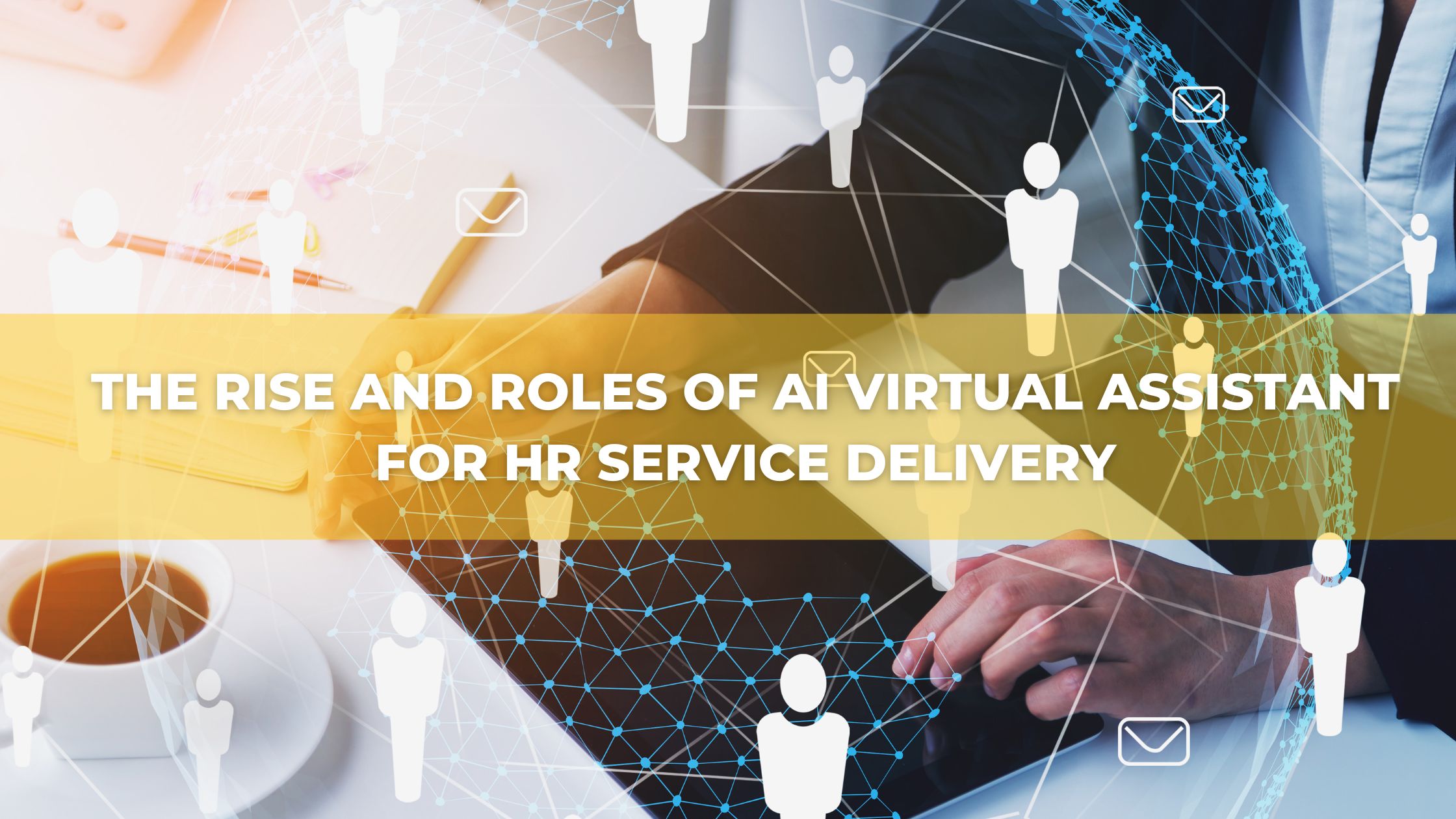In an era defined by the rapid advancement of technology, AI-driven solutions have infiltrated almost every facet of our lives. Among these groundbreaking innovations, the AI Virtual Assistant stands out as a revolutionary tool that is redefining the way Human Resources (HR) services are delivered. This article explores the rise and pivotal roles of AI Virtual Assistants in HR service delivery.
What is an AI Virtual Assistant?
An AI Virtual Assistant, also known as an AI Assistant or Intelligent Virtual Assistant (IVA), is software empowered by Artificial Intelligence (AI) that produces tailored responses by merging analytics and cognitive computing. It accomplishes this by drawing on unique user or customer data, prior dialogues, and location information. Simultaneously, it leverages the organization’s vast knowledge repository and human understanding. This amalgamation of capabilities allows AI Virtual Assistants to provide seamless, personalized assistance to users.
The Rise of AI Virtual Assistants
In recent years, AI Virtual Assistants have seen a meteoric rise in popularity and utility across various sectors. This surge can be attributed to the following key factors:
1. Increased Autonomy: As AI technology evolves, AI Virtual Assistants are expected to become even more autonomous. They will learn from past interactions to predict and perform tasks without needing explicit instructions. This increased autonomy promises to enhance efficiency and streamline HR service delivery.
2. Enhanced Personalization: The future of AI-Powered Virtual Assistants will likely feature a higher degree of personalization. These AI Virtual Assistants will be even better at learning our preferences, habits, and routines, enabling them to offer more tailored assistance. In an HR context, this means providing employees with precisely what they need, when they need it.
The Role of AI Assistants in HR Service Delivery
The integration of AI Virtual Assistants in HR service delivery is transforming the way HR departments operate. Here are some key roles these AI assistants play:
1. Onboarding and Training: AI Virtual Assistants can guide new employees through the onboarding process, providing them with essential information and answering their questions. They can also offer ongoing training support, helping employees develop their skills and knowledge.
2. Employee Self-Service: AI assistants enable employees to access information and perform HR-related tasks autonomously. They can handle routine inquiries about benefits, payroll, time off, and company policies, freeing HR personnel from repetitive tasks.
3. Talent Acquisition: In the recruitment process, AI Virtual Assistants can screen resumes, schedule interviews, and provide initial information to potential candidates, ensuring a more efficient hiring process.
4. Performance Management: These assistants can support performance appraisal processes by tracking and analyzing employee performance data. They can also offer feedback and recommendations for employee development.
5. Employee Engagement: AI Virtual Assistants can gauge employee satisfaction through surveys and sentiment analysis, helping HR teams identify areas for improvement and implement strategies to enhance employee engagement.
Ethical Considerations in the Use of AI Virtual Assistants
While AI Virtual Assistants offer numerous advantages, they also raise important ethical concerns. As AI assistants become more advanced, they will increasingly make decisions on behalf of humans, leading to questions of responsibility and accountability in the event of errors or harm caused by AI.
Furthermore, AI Virtual Assistants, like all AI systems, can unintentionally reinforce biases present in the data they are trained on. This highlights the need for robust and unbiased training data and continuous monitoring to mitigate biases.
Privacy concerns also loom large. AI assistants often require access to sensitive and personal information, making it essential to implement stringent security measures and ensure transparency regarding data usage.
To address these ethical concerns, it is crucial for both AI developers and users to act responsibly. Developers should prioritize creating AI that respects privacy, values, and rights. Users must be informed about the capabilities and limitations of AI assistants and understand how to use them responsibly.
In conclusion, the rise of AI Virtual Assistants in HR service delivery is reshaping the landscape of human resources management. With their increasing autonomy, personalization, and potential for efficiency, these AI assistants are poised to play an indispensable role in HR departments, provided that ethical considerations are adequately addressed. As AI technology continues to evolve, the future of HR service delivery looks promising, with AI Virtual Assistants leading the way towards a more streamlined and effective HR ecosystem.
